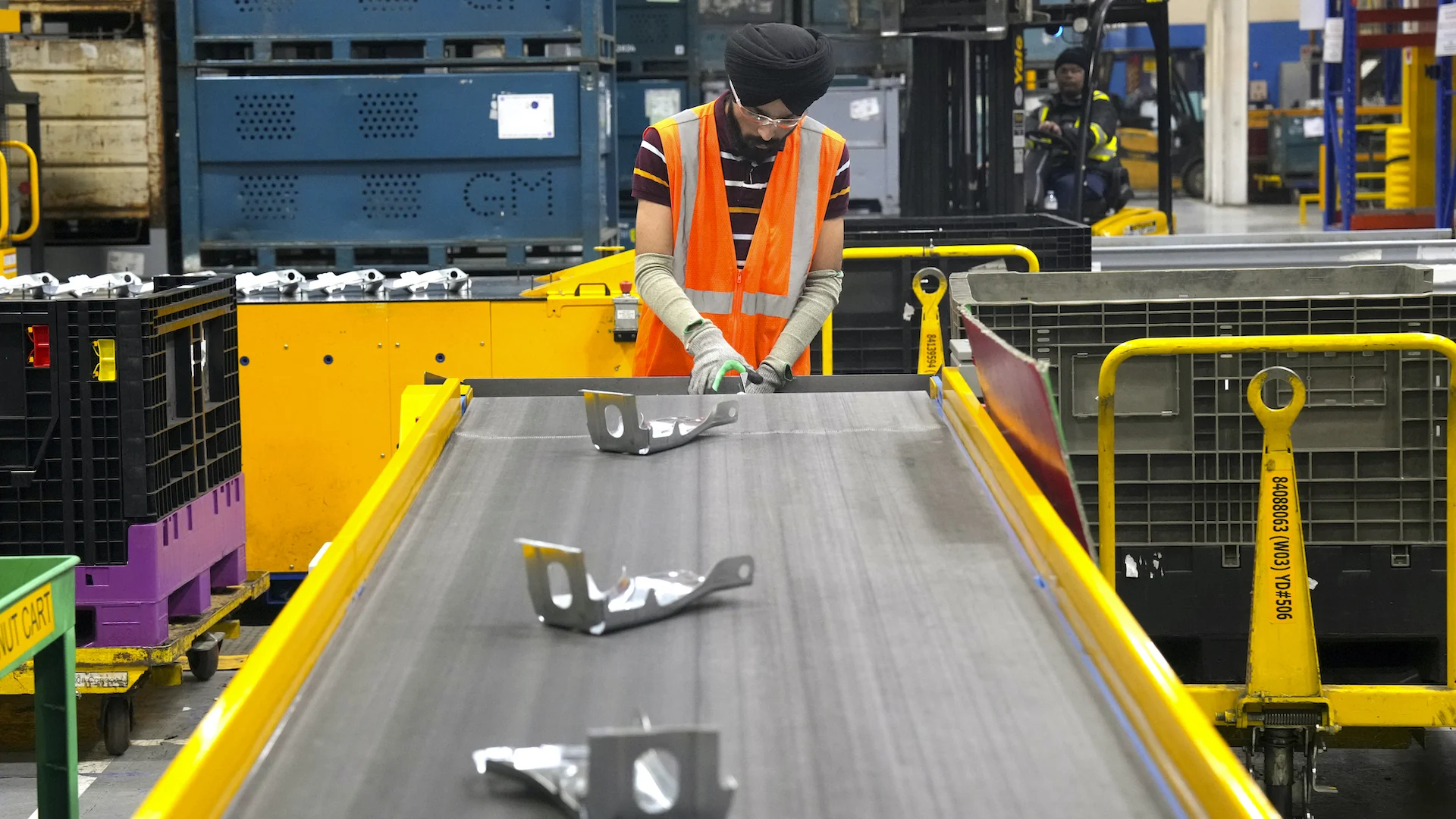Why Web 3.0 Will Rewrite the Business Playbook: An Interview withBrad Howarth, CMO Australia


Unique posting composed by Brad Howarth, CMO
What an severe honor it was to check out Melbourne and Sydney soon after all this time. Subsequent my presentation at the Salesforce Retail and Buyer Items Industries Summit, I fulfilled with my new buddy Brad Howarth of CMO Journal. Around the course of a person hour, we explored anything from the potential of brands, the new role of marketing and advertising in 2030 businesses, and of class, the growing entire world of Internet3 (Web 3.), the upcoming iteration of the web.
Brian Solis: Why Net 3. will rewrite the notion of internet marketing
What if almost everything you understood about advertising and marketing stopped doing work? A dialogue with Salesforce’s Brian Solis
Advertising and marketing practices have modified drastically in latest several years as new technologies, channels and processes have rewritten guidelines of engagement and delivery. But at its main, numerous essential principles that underpin marketing – aggregating audiences, coming up with and providing strategies and driving conversion – continue being essentially the exact same as they ended up when they had been initially refined in the 1950s and 1960s.
On the other hand, the planet is changing promptly, and is evolving towards what may be the upcoming fantastic revolution in digital systems: Internet 3.. This claims to convey alongside one another concepts relating to id, believe in, decentralisation and immersive virtual environments.
Even though the genuine impression of Website 3. is not possible to forecast at this time, its proponents discuss of a decentralised planet wherever control and ownership of details and electronic property resides with the specific, not the corporation. Should really these prognostications translate into reality, they will have a profound effects on the romantic relationship between organisations and their buyers, redefining customers as group members or stakeholders, and eschewing strategies in favour of ongoing associations. This indicators a tumultuous time ahead for marketers.
While this sort of fundamental alter is tough to take into account amidst the working day-to-day stresses of managing a advertising operate, it is incredibly significantly on the mind of Brian Solis, awarding-successful creator and renowned digital anthropologist and futurist. In his current part as world wide innovation evangelist at Salesforce, Solis is tasked with discovering and interpreting the ramifications of digital transformation, innovation and disruption. And there are several greater emerging disruptions than that threatened by Website 3..
What fears Solis now is that many organisations – and specially those born ahead of the electronic revolution of the mid-1990s – are continue to coming to grips with what it means to be a electronic company. And even those people born of the digital era are by themselves nonetheless adapting to the social mother nature of the web’s 2nd iteration from the mid-2000s.
“The assure of Net 3. is pretty powerful, and it is also inescapable,” Solis tells CMO. “The difference between World-wide-web 2. and Internet 3. is raising the chasm involving what organizations need to do for this digital-initial era, and what they however accomplishing from the pre-digital era.”
He claims this is reflected in the way shoppers working experience ecommerce – a growth of the Web’s first era– which is fundamentally the identical these days as it was 20 decades in the past.
“If you glimpse at the digitisation we are performing, no matter whether that is retail or company in common, it is digitising siloed products, to do what they do at scale with higher efficiency and intelligence,” Solis claims. “But it is now firing over to a group of shoppers for whom it is not as powerful as it utilised to be.
“That suggests the time for change is truly here, due to the fact customers are not likely to go backwards.”
Exploring new styles
Should the claims of Web 3. maintain true, Solis believes it will travel new kinds of engagement concerning organisations and consumers crafted all over principles of participation and benefit exchange, instead than mono-directional commerce.
“That trajectory is likely to make a new stage or normal of shopper working experience,” Solis suggests. “In this metaverse entire world, prospects are likely to have a a great deal more immersive website. The Web 3. construct basically encourages not just membership, but local community.”
The best problem Solis thinks quite a few executives will experience will not be that of technologies, but what will arise from their very own ordeals. These could generate mindsets and processes optimised for a entire world that soon could not exist.
“In get to accelerate significant small business transformation and shopper relevance you have to start out at a management stage, and at a level that seriously issues your possess assumptions of how to do factors,” Solis claims.
The obstacle that emerges is that leaders who feel they are on the ideal path to digitisation today are only enjoying catch up, acquiring invested the past couple of a long time modernising previous procedures somewhat than coming up with new ones.
“We did not speed up digital innovation, we accelerated digitisation,” Solis states. “We are digitising pre-pandemic procedures, supported by pre-pandemic organisational types. And quite a few of these designs are rooted in the 1950s and 1960s. We have not stopped to inquire what else we can do.”
Innovator or fast follower
The obstacle of Net 3. is mirrored in the truth that for each era of know-how, a great deal of the prosperity has been developed by fully new entrants – Amazon and eBay for the Web’s to start with iteration, Facebook and Google for its 2nd. While there are exceptions (Apple was formed in 1976, but subsequently underwent a renaissance with Steve Jobs’ return in 1996), organisations born prior to each individual wave have only succeeded through staying quickly followers.
Of training course, heritage need to have not repeat itself, and the new giants of the World-wide-web 3. period are but to emerge. That indicates alternatives exist for any organisation to take a foremost job – if they start out now.
“The ‘digital-first’ product has to be reimagined, and World-wide-web 3. preparation has to start out now,” Solis claims. “You have firms that are likely to go on to digitise present designs. But you have yet another team of organizations that are inquiring distinctive queries now.
“You have to get back again to essentials and glance at the construct of how you are connecting with your clients, and just uncover some pilots to exam.”
For Solis, there are two components that run in any regular organisation’s favour. Firstly, he counsels the Internet 3.9 revolution will not materialize right away, so agile organisations will have the opportunity to discover and adapt. Next, those that have invested to acquire a 360-diploma look at of their consumers, and organised their operations to utilise this standpoint, will come across their investments will be exceptionally precious in the World wide web 3. era.
“If you can know your clients, you can know what they value and how that price evolves about time, and how to organise all over the supply of that value now and about time,” Solis suggests. “It makes an agile, advanced design, so as the shopper starts to taste the empowerment of what whole World-wide-web 3. makes it possible for.
“What we are talking about is change from becoming a shopper to currently being a stakeholder.”
Management-alt-delete
Eventually, Solis believes the transformation to World-wide-web 3. and concepts such as the metaverse will stand for a reset for marketers and for the organisations that hire them – anything he describes as a ‘control-alt-delete’ minute.
“This is a manage-alt-delete second – a single without the need of a playbook – that requires the imagination and the reinvention of what it implies to be a enterprise in this new globe,” Solis suggests. “If you experienced to invent the company of 2030 you wouldn’t search to the 1950s and 1960s to study how to industry to this audience – you would invent it. And that is the option we all deal with.
“We’re not going to fix for it by seeking to adapt yesterday’s versions for 2035. It is a second for leaders to manage-alt-delete management itself.”







